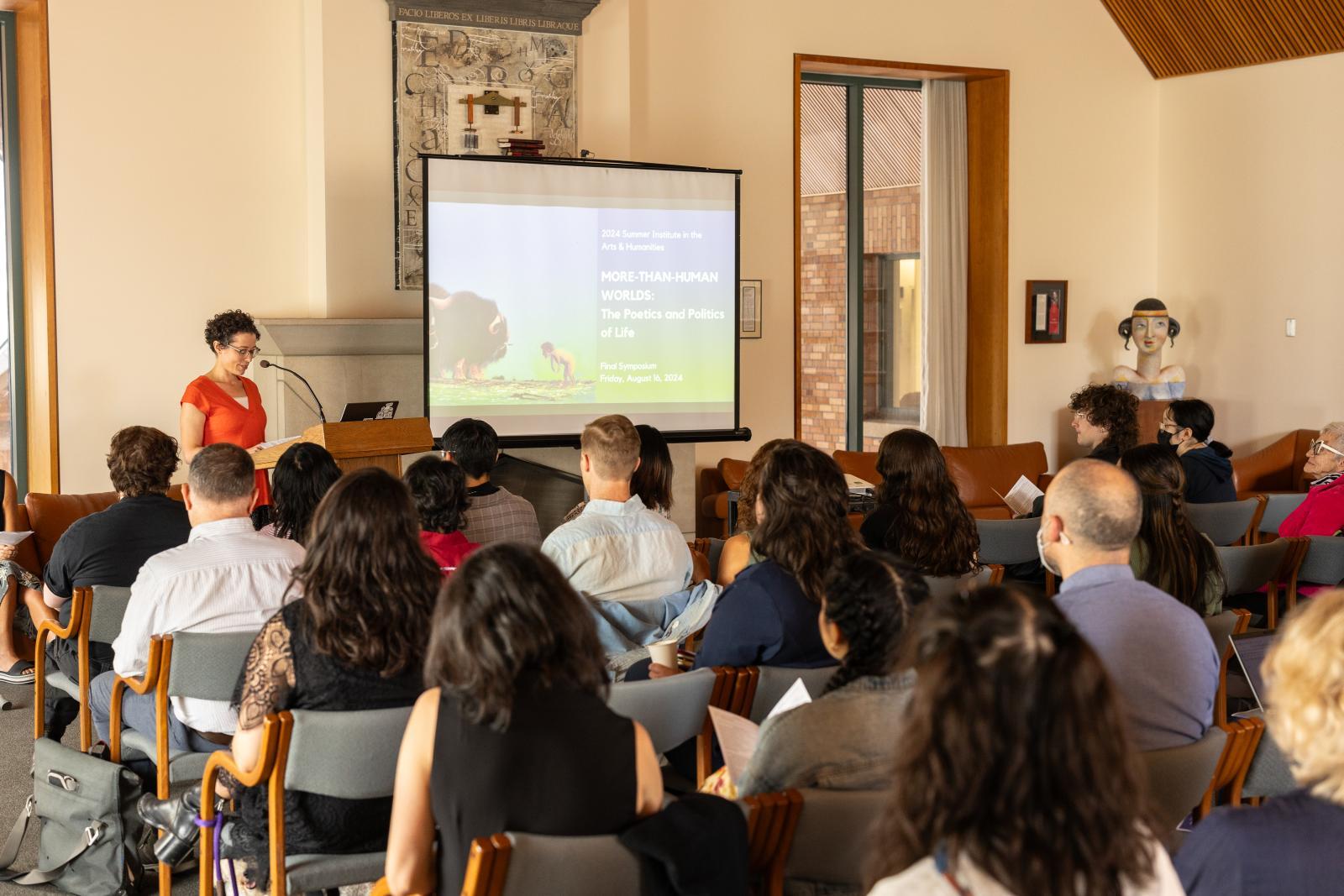
Over the years of its distinguished history, the program has become recognized as a national model. It is also persistently innovative: course themes have ranged from indigenous studies to digital arts, from public health to Black aesthetics and more.
During the summer of 2024, twenty undergraduate students at the University of Washington explored the poetics and politics of life in an intensive introduction to research methods in the arts and humanities. SIAH—the Summer Institute in the Arts & Humanities—is a 12-credit immersive academic experience led by a teaching team of four, including three UW faculty members and one doctoral student, whose active research projects in their various disciplines shape the course theme, inform the syllabus, and model scholarly excellence for students. The class meets in a seminar format in the opening weeks, then shifts to emphasize independent research projects developed by students with individualized guidance and support from the instructional team. At the end of the term, students present their work in a formal symposium, widely considered to be one of the most impactful events in undergraduate research held annually on our campus.
Founded in 2002, and involving over 350 students across its many iterations, SIAH is a partnership of the Simpson Center for the Humanities and the UW Office of Undergraduate Research. All current undergraduate students in good academic standing at UW are eligible to apply, and all who are selected to enroll are named Mary Gates Scholars and receive a $6,000 Research Scholarship award. Over the years of its distinguished history, the program has become recognized as a national model. It is also persistently innovative: course themes have ranged from indigenous studies to digital arts, from public health to Black aesthetics and more. This year, students were asked to reflect on what becomes possible when we decenter the human in the arts and humanities, and to cultivate an appreciation of the more-than-human-world —from plants to animals to water to rock—as agentive, animate, and inextricably entangled with human lifeworlds. This framing, thoughtfully designed by lead instructor María Elena García (Comparative History of Ideas) and a cross-disciplinary instructional team drawn from CHID, French & Italian Studies, and Anthropology, encouraged students to follow their own inquiries into a deeper understanding of the complexities of life across those shared worlds.
Students who enroll in SIAH consistently report that it is the best academic experience they have ever had; instructors tell us that it is the most meaningful teaching experience they have ever had. The Simpson Center for the Humanities maintains its longstanding commitment to excellence in undergraduate research so that these intellectual communities can be brought together, year after year. It is our conviction that in doing so, we are building the future of the arts and humanities, one question, one sentence, one insight at a time.